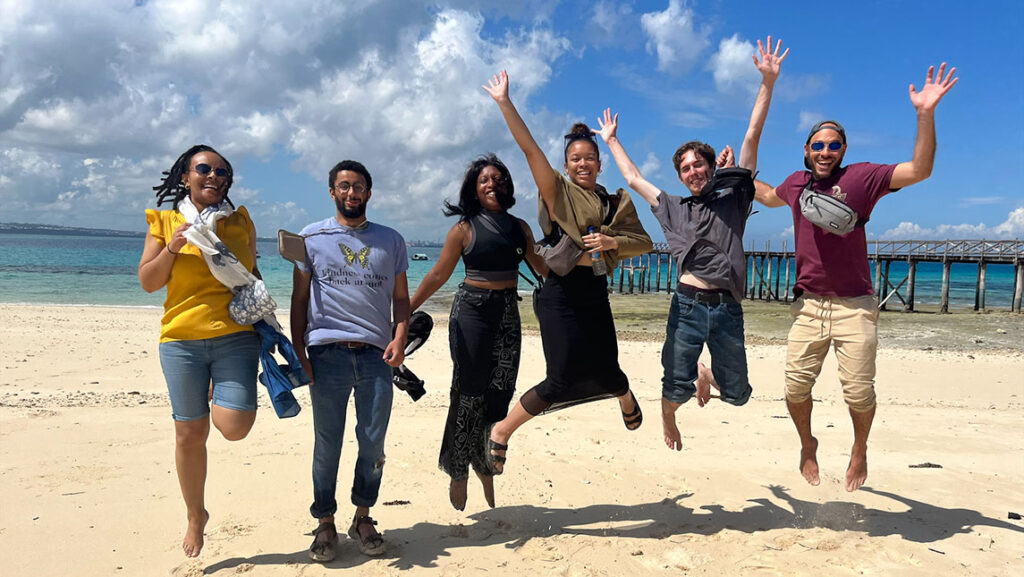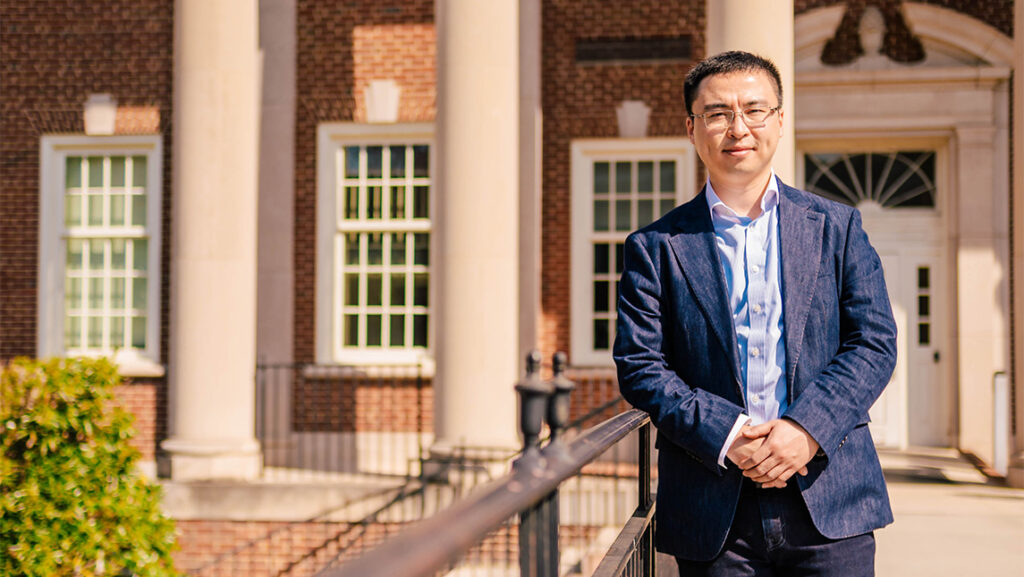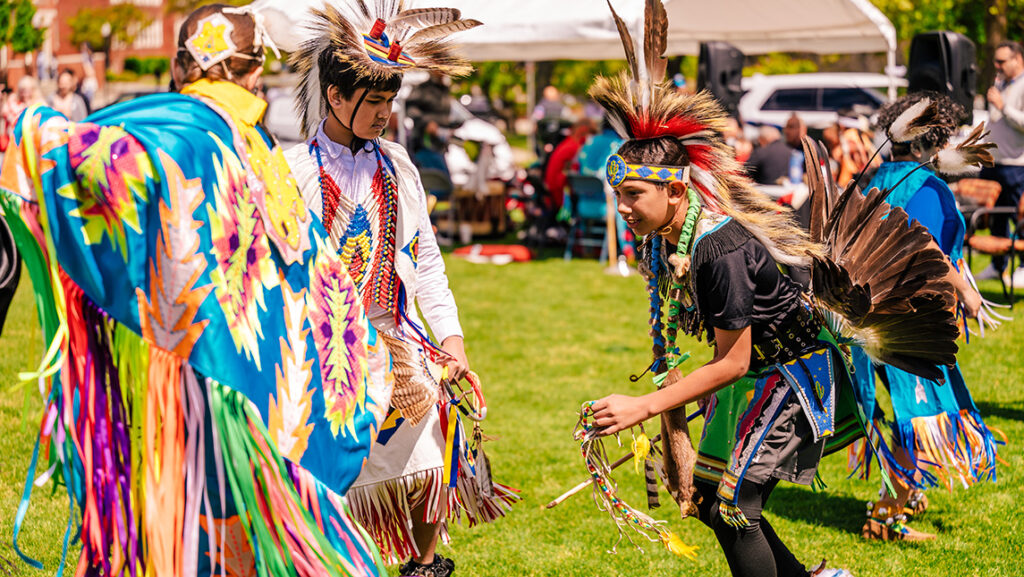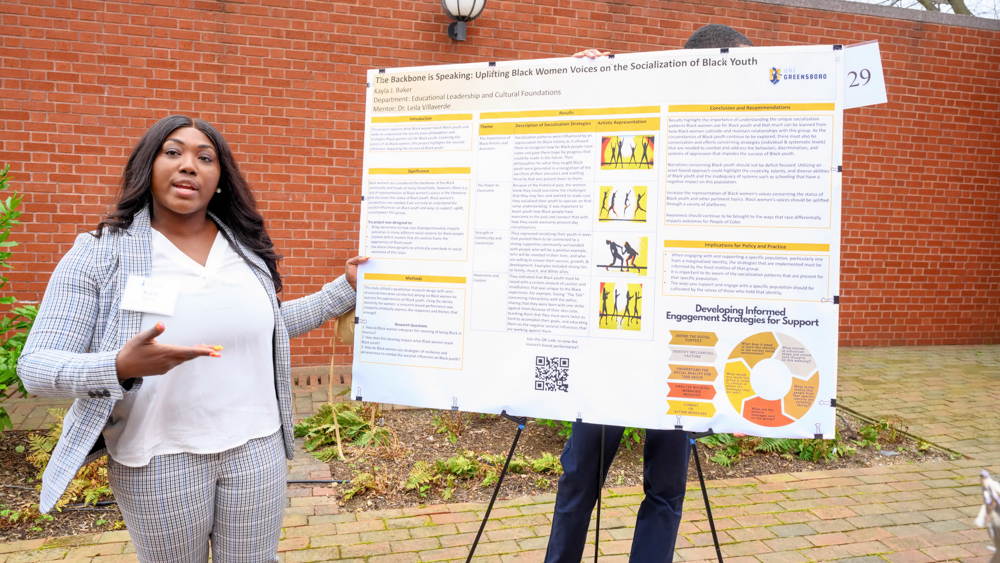
The summer semester is a great time to brush up on skills that can serve a scholar well in their future career. Communicating science effectively is a sought-after expertise in a variety of professions, from healthcare workers to high school teachers. But it can be tricky to master.
We caught up with two of the winners from the Spring 2022 Graduate School’s Scholarship & Creativity Expo, Kayla Baker and Seraiah Coe, to request their science communication tips for the Spartan community. Coe and Baker received awards at this year’s expo, “Showcase of Scholarship,” due to their ability to translate their scientific research effectively.
Kayla Baker, a doctoral candidate in the Department of Educational Leadership and Cultural Foundations, won first place in the social sciences, education, & business category for her presentation “The Backbone is Speaking: Uplifting Black Women Voices on the Socialization of Black Youth.” Her work centered a research-based performance piece that you can view here. Baker’s research mentor is Leila Villaverde, who is a professor in the School of Education.
Seraiah Coe, a master’s student in the Department of Biology, won first place in the natural, physical, and mathematical sciences category for her presentation titled, “Are grandparents’ lifestyles responsible for their grandchildren’s health?” Her research mentor is Ramji Bhandari, who is an assistant professor in the Department of Biology.
These two Spartans shared valuable insight about their perspective on science communication and advice for others hoping to hone their skill set.
How did you prepare to communicate your science to a non-scientist audience at the Graduate Research & Creativity Expo?
KB: I would talk about my project with my family and friends who were not familiar with research. As they asked clarifying questions, I was able to use their inquiries to adjust the language I used to make sure it could be easily understood.
SC: I continuously sought out non-science individuals to present my research to. By doing this I was able to address any communication barriers that I was unknowingly blind to.
What are some of the approaches that work best for you when communicating science with the general public?
KB: Providing a brief overview of the project (what you did, the why behind your project, and the highlights of your findings) was one of the best approaches I could use. I developed an elevator pitch to share my research that was captivating, yet simplistic. After you give the overview, it’s nice to just open the opportunity for discussion and questions the audience might have. The discussions are usually a great time to learn more about who you are talking to and their interest in your research. It is also a great time for reflection as the audience could share something or ask a question that really makes you think differently about your work.
SC: Display the relevance of science and your research in the daily lives of those in the general public. I always begin with background information that will not only act as a gateway to the importance of the research but will also tie into their own lives. I also tend to use both words and images to convey important information, because not everyone learns the same way, and images tend to stay with people for longer. Finally, I try not to use any field-specific jargon unless I define it first, and I provide an example if it is essential to explaining the research.
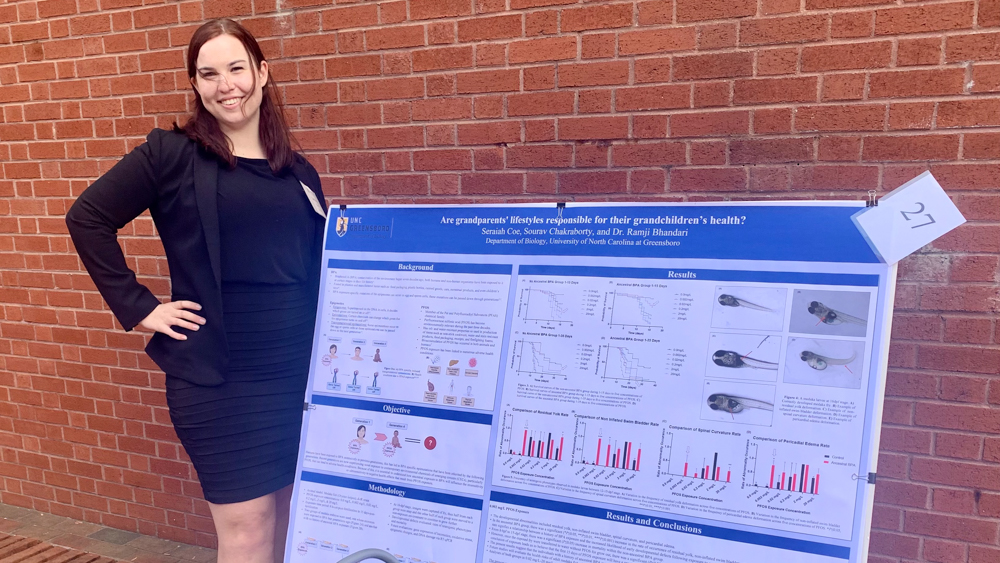
Why do you choose to communicate and share your science as a Spartan?
KB: It has become so important for me to help increase representation of what researchers look like and what research is. As I share my story and research, I know that I am inspiring others to do the same.
SC: I believe that sharing science with the general public, in a way that is applicable to them, is one of the most important things you can do as a scientist. One of the tenets of science is to progress society – we cannot do that if the information that is found is not shared with the public. The way that science is shared is also a critical factor; if scientists are not willing to take the time and effort to explain their work in an accessible manner, they risk the isolation of the public from their research, which then limits their work’s overall impact. This is why I consider making science approachable for everyone through effective scientific communication. It’s a responsibility of scientists, including myself.
What advice would you give a Spartan who is new to communicating their science?
KB: My advice would be to believe in yourself and never doubt your work from the beginning. Establishing a strong foundation of confidence will really shine through when it comes to communicating your research.
SC: Do not be afraid to seek advice from non-scientists about the way you communicate science. Their insight will allow for a critical perspective on how you can improve your presentation for a wider audience. Treat every question as an opportunity. You will often get questions during presentations that bring up where the gaps in understanding are, and you can use that information to improve your presentation in the future. Never use phrases that sound like you are questioning the audience’s intelligence or patronizing them. Just because an individual is not in your field does not mean that they do not have valuable insight. While you are presenting, ensure that you are verbally and physically, displaying your passion and enthusiasm for science. This can be done through tone, facial expressions, and body language to name a few. This will increase investment from the audience in what you are presenting. Finally, tell the audience a story. When research is done well, it tells a story.
Story by Rachel Damiani
Photography by Martin W. Kane, University Communications
